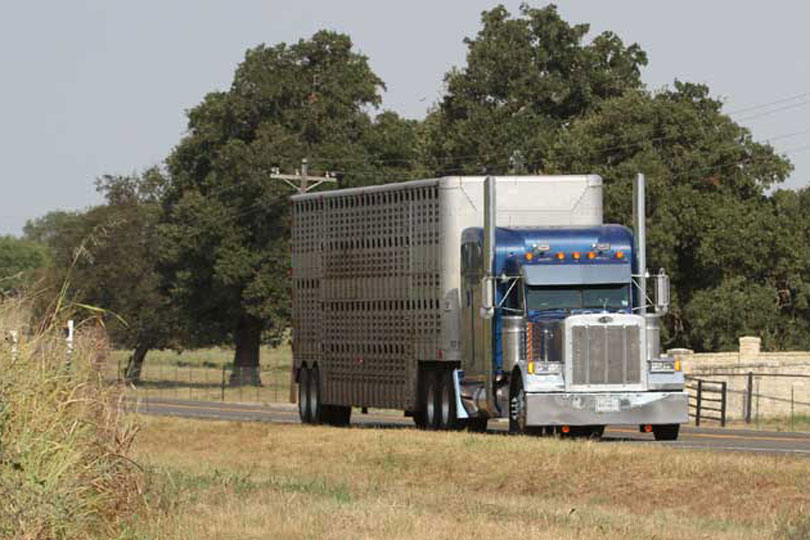The Department of Transportation’s Federal Motor Carrier Safety Administration (FMCSA) denied an exemption from hours-of-service rules for drivers transporting live animals.
The request for exemption applied to all livestock, insect and aquatic animal haulers and their drivers.
The exemption would have allowed drivers, after taking 10 consecutive hours off duty, to drive through the 16th consecutive hour after coming on duty and to drive a total of 15 hours during that 16-hour period.
The agency said the request would not lead to safer conditions for drivers.
“If the agency were to grant the exemption, drivers transporting agricultural commodities would be allowed six or more hours of driving time within the 150 air-mile exempt zones for the transportation of agricultural commodities, in addition to the 15 hours of driving time outside the zone,” FMCSA said in the Federal Register notice. “Allowing 21 or more hours of driving during a work shift would not likely achieve a level of safety that is equivalent to, or greater than, the level that would be achieved absent the exemption.”
The request for the exemption was made by the American Farm Bureau Federation, National Cattlemen’s Beef Association (NCBA), Livestock Marketing Association, American Beekeeping Federation, American Honey Producers Association and the National Aquaculture Association.
The agricultural groups have long voiced concerns over the hours-of-service rules and electronic logging device requirements. The groups said hours-of-service regulations place the well-being of livestock at risk during transport and impose significant burdens on livestock haulers, particularly in rural communities across the country.
“We are disappointed in FMCSA’s decision, especially when the cattle and beef supply chain faces continued stress from driver shortages and a potential rail strike,” Kent Bacus, NCBA executive director of government affairs, said. “Hauling cattle is very different from hauling consumer goods, which is why NCBA will continue urging Congressional leaders to support expanded hours-of-service flexibility for livestock haulers so they can continue making their critical deliveries.”

